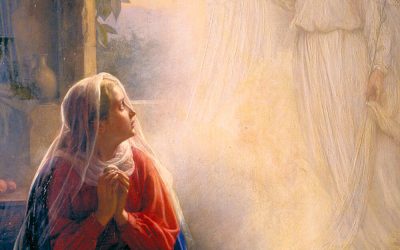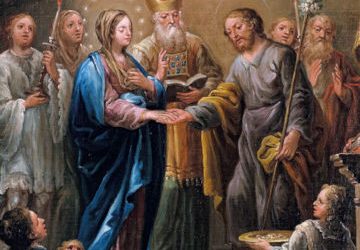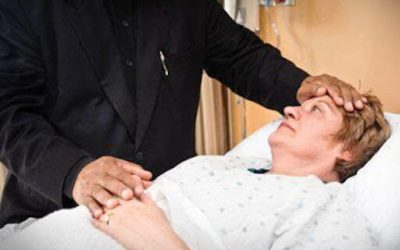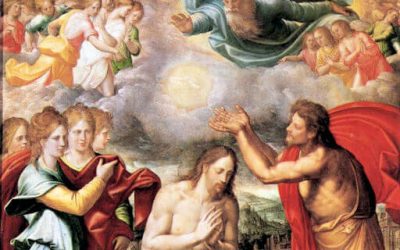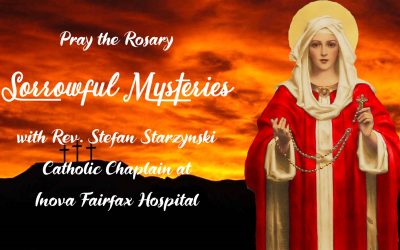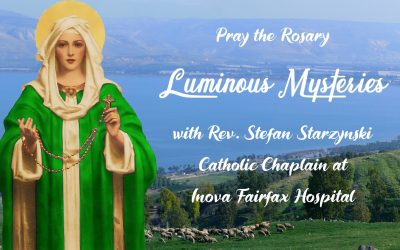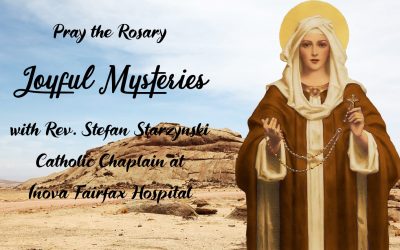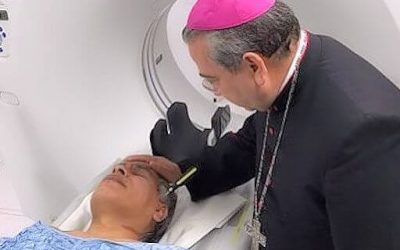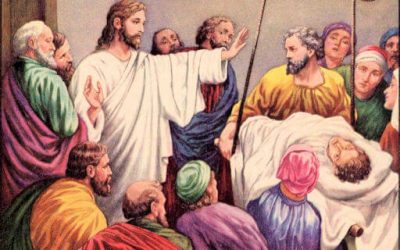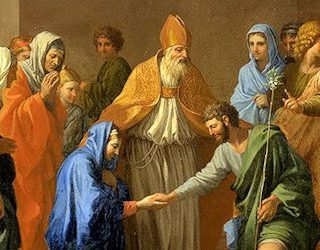During Anointing of the Sick (found in the Rite of Pastoral Care of the Sick), a priest first blesses the olive oil (if it is not already blessed) and then uses the blessed oil to anoint the person. The priest first anoints the forehead, saying: “Through this holy anointing, may the Lord in His love and mercy help you with the grace of the Holy Spirit.” He then anoints the hands, saying: “May the Lord who frees you from sin, save you and raise you up.”  Interestingly, if Anointing of the Sick is being given to a priest, then just the tops of his hands are anointed, since the palms of his hands had already been anointed at his ordination.
Interestingly, if Anointing of the Sick is being given to a priest, then just the tops of his hands are anointed, since the palms of his hands had already been anointed at his ordination.
While Anointing of the Sick is most commonly given in an individual setting, sometimes it may be given in a larger group during or after the celebration of the Mass. The Church understands that every Mass imparts the grace inducive to healing, but the Rite of Pastoral Care for the Sick includes extra prayers and instructions on how to celebrate Anointing of the Sick within the Mass. However, the Rite of Pastoral Care for the Sick also cautions that “if offered during Mass, the sacrament may not be administrated to all and sundry but only to those who qualify for its reception. … In particular, the practice of indiscriminately anointing numbers of people on these occasions simply because they are ill or have reached an advanced age is to be avoided. Only those whose health is seriously impaired by sickness or old age are proper subjects for the sacrament.”
In addition to that, there is a specific “Mass for the Sick” in the Roman Missal that contain prayers specifically focused on healing. In some cases, after a priest celebrates a “Mass for the Sick,” he then spends time praying over people and asking for their healing. Often called a “Healing Mass,” this is NOT the same as the sacrament of Anointing of the Sick. In 2000, the Congregation for the Doctrine of the Faith released the Church’s “Instruction on Prayers for Healing” where they lay out the groundwork for these healing services. Some of these instructions include:
- Every member of the faithful may pray to God for healing, either for themselves or for others. It is only when this is organized in a church or other sacred place that such prayers should be led by an ordained minister. This is unlike Anointing of the Sick, which can only be administered by an ordained priest (taken from Article 1).
- Anything resembling hysteria, artificiality, theatricality or sensationalism, especially on the part of those who are in charge of such gatherings, must not take place (taken from Article 5, section 3).
- Those who direct healing services, whether liturgical or non-liturgical, are to strive to maintain a climate of peaceful devotion in the assembly and to exercise the necessary prudence if healings should take place among those present. If appropriate, when the celebration is over, any testimony can be collected with honesty and accuracy, and submitted to the proper ecclesiastical authority (taken from Article 9).












